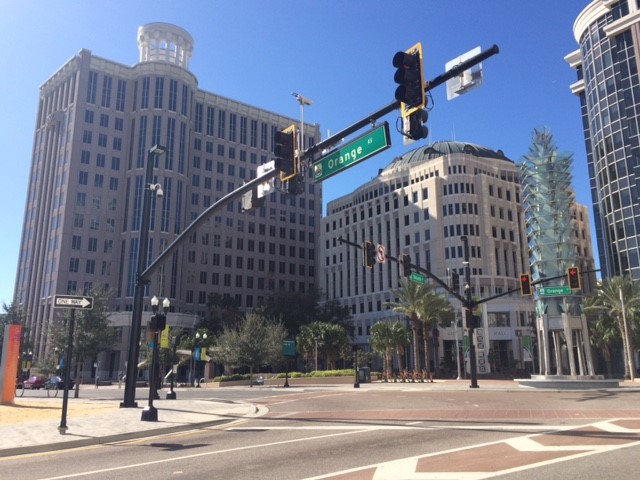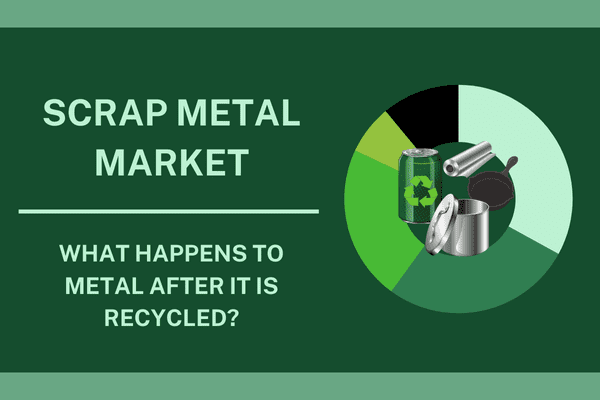
Across the country, municipal government scrap recycling is becoming a thing to reckon with and here’s why.
A growing number of municipal governments are investing in recycling programs for local residents. And this includes items that aren’t suitable for your household recycling bin. Good examples of this are items that contain scrap metal. That includes used vehicles or parts, appliances, and other bulkier items.
But when it comes to scrap metals and used electronics, municipal government leaders have a significant opportunity to practice what they preach. In other words, it’s not just local residents and businesses who can recycle. The city, county and state government can, too.
Municipal offices with various departments likely go through a lot of metal products each year. But are they making sure those outdated items are being recycled?
Whether it’s office equipment at City Hall, used classroom laptops in the public schools, aging vehicles used by city workers or the police department, or equipment that needs replacing at city-run parks and recreational facilities, most municipal governments are likely to generate a lot of used scrap each year.
And all government agencies could develop their own internal recycling program which gets those materials to a scrap metal recycling firm like GLE Scrap Metal.
GLE will purchase, process, and re-integrate all recyclable base metals. That way, they can be transformed into new products.
This also puts local government agencies in the position of leading by example.
How to deal with Municipal scrap

Like a lot of businesses, municipal government leaders may not realize they have a large amount of scrap that’s reaching the end of its life span and needs to be replaced – and should be effectively be recycled.
Leading scrap metal recyclers like GLE Scrap Metal are available to work with local, state, and federal government agencies to ensure their scrap is properly recycled.
And there are certainly a lot of government departments that could become part of scrap recycling programs operating at the local, county or state level. This includes:
- School districts
- Transportation departments
- Public universities
- Public hospitals and health care centers
- Agencies that service military veterans
Recycling firms like GLE will transport scrap from government-run offices and departments. That includes obsolete transportation equipment, or metals from building and city infrastructure.
What are examples of government scrap?
Transportation is a good example. Depending on the size of the city, municipal governments may find themselves replacing a host of transportation equipment that contains valuable metals. This includes:
• Car vehicles
• Buses
• Rail Cars
• Subway cars
• Trailers
• Boats and barges
Medical device scrap recycling can also be a way that cities can recycle.
Some cities, like Orlando, Fla., make bicycles available around their downtown area. That allows residents to rent them for the day. When these bicycles are ready to be replaced, they can be recycled!
At the same time, government offices that use a host of electronic equipment – computers, fax machines, printers, scanners, and cell phones — can arrange to have these items recycled once they need to be replaced.
City-run hospitals and veteran medical centers may find themselves needing to replace equipment. Hospitals and medical facilities can be a leading source of precious metal scrap. Some sources of those precious metals found in health care facilities include:
- X-rays, MRIs, mammography and other imaging film
- Medical device monitors and machines containing circuit boards
- Defibrillators
What’s needed is a city or countywide program that puts all government agencies under the same recycling rules. If a department has scrap that’s no longer in use and needs to be replaced, then the game plan is to ensure it gets recycled, not tossed in with regular municipal trash.
Municipal commitment to the environment
There’s a very strong environmental message that city and county leaders are making by establishing scrap metal recycling for all local departments. Municipal recycling and scrap management programs demonstrate that city leaders are committed to a healthy environment for all residents. And it demonstrates they are taking a stand against all that scrap ending up in local landfills.
Scrap metals contain toxins like mercury and lead which pose significant health risks if they seep out into the soil and water. These toxins can be poisonous, threatening our local wildlife and even the health of nearby residents.
The most successful alternative has proven to be recycling. It keeps scrap out of the junkyard. And instead, government agencies – whether in small towns, big cities, or suburban areas – can take their scrap to an agency like GLE. That will also boost revenue generation opportunities for those communities.
The municipal services that GLE provides helps protect the health and safety of the community. GLE continuously trains its staff on environmental procedures. And they follow guidelines set by the Occupational Safety and Health Administration and Institute of Scrap Metal Recycling Industries.
This family owned and operated business performs environmentally-friendly processing and recycling of all base and precious metals, and strives to protect our natural resources, conserve energy, and help promote public health.
Scrap metal recycling helps prevent waste from getting into landfills, and it also substantially cuts down on the use of chemicals needed in ore mining, which is the only alternate method of getting metals for new production.
If you think about it, it would be no small irony if municipal governments urge residents to recycle to help protect the local environment, but don’t follow the same practice within the walls of their own departments and agencies.
Creating local jobs
There’s another significant benefit when municipal governments initiate scrap metal recycling programs, and that’s job creation. Because Scrap metals are the most commonly recycled and reused commodity in the world.
And recycling metals can save cities money when they are embarking on new construction projects, because using recycled materials is more cost-effective overall.
Surveys indicate that the fast-growing scrap metal recycling industry now employs more than 450,000 workers across the country, while generating more than $10.3 billion in revenue for governments in the U.S. This is particularly true in large population states like California, Florida, New York, and Texas.
Municipal Government Scrap Recycling
If you’re a government worker responsible for overseeing a municipal recycling program, and you want to be certain that any government-owned items containing metals are properly recycled, contact GLE Scrap Metal today for information on our services.
Our experienced staff can meet with you for a professional consultation and discuss your recycling options and ways to reduce your solid waste costs.
As a full-service, all-in-one recycling company based throughout the U.S., GLE supplies domestic mills and global end-users with a wide range of raw commodities that can be used to make new products.
We can help you develop a sustainable and comprehensive recycling program for your municipality. It will ensure that all government items containing metals will be recycled.
Call us today at 855-SCRAP-88 to request a quote.


